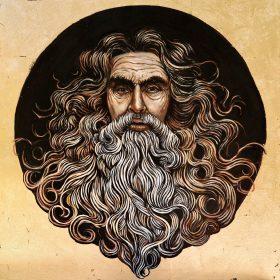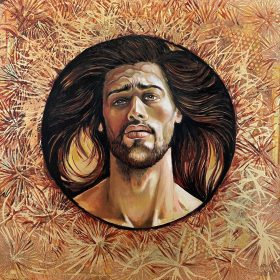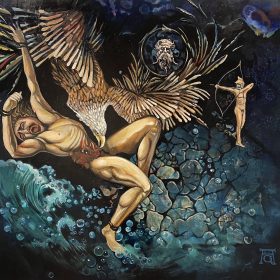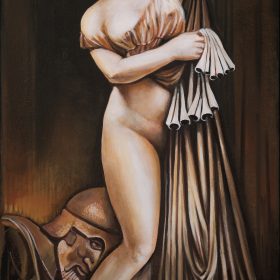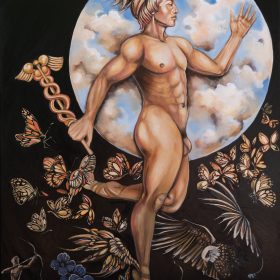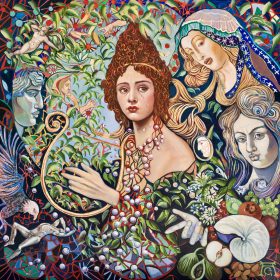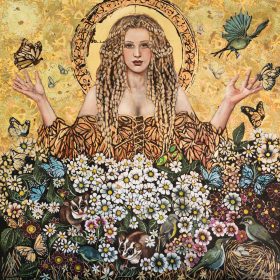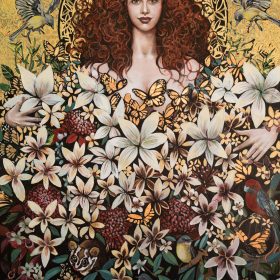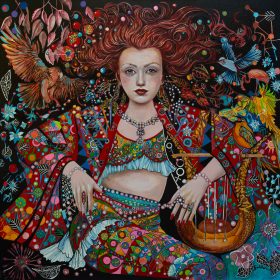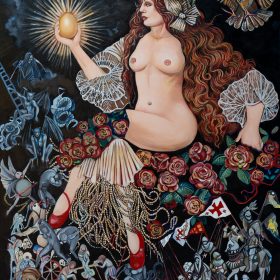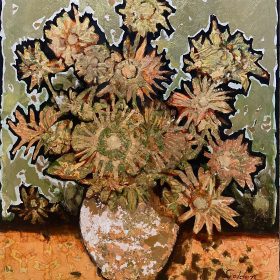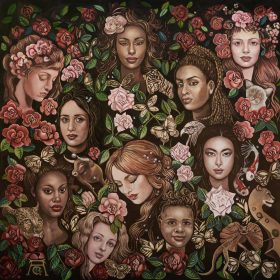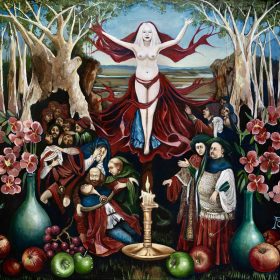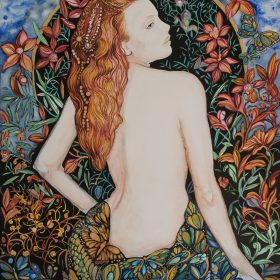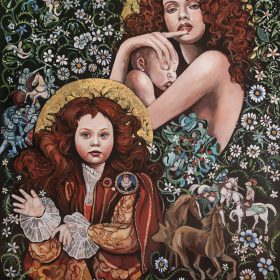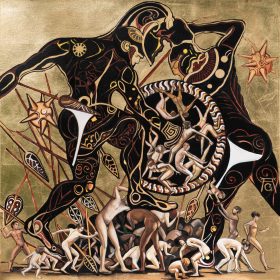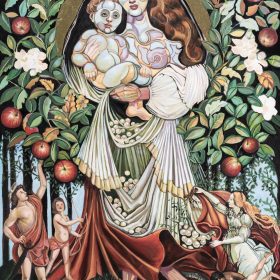Annette Golden’s exhibition “Pandora: Hope, Hype and Hubris- 3,000 years of AI” explores the classical myth of Pandora, a story that resonates strongly today with its focus on the creation of evil, the relationships between women and men and the role of technology in shaping our lives. Was Pandora a classical archetype foretelling the advent of AI and are we now in turn birthing a vast and God-like intelligence to wield uncontrollable power and authority over our lives? What will this mean for humankind and what we understand to be the intrinsic value of “humanity”? Can we remain in the driver’s seat?
Each painting explores a milestone, starting with a classic battle of egos between Zeus and Prometheus. Pandora, the “first woman” , gifted with the most desirable of traits and talents is created by Zeus as an act of revenge. Her purpose is to wreak havoc as payback for Prometheus’s gift of fire to mankind. Zeus considered mankind to be feeble and unworthy and sought to prevent its advancement by whatever means. As with other creation stories in Western culture, casting the “first woman” is the original “agent of chaos” has given rise to an inheritance of social, religious and cultural blame and shame. This continues to impact the lives, relationships, goals, ambitions and dreams of both men and women.
Overlaying the above, we are at a point in time when extraordinary leaps in technology in the form of generative AI polarise our view of the future. While excited by the immense opportunities AI will provide we are concurrently fearful of the unknown. Will generative AI elevate our lives such that our intrinsic mortality and ability to reproduce our species will stand us apart from artificial forms of life and intelligence? Or will our “humanity” only come to mean an inherent vulnerability and fragility to be exploited by a greater power that may consider all of us to be feeble and unworthy. The sense of the story coming full circle is unavoidable yet intriguing. Ultimately, these are matters that rest with current and future generations to determine as we grapple with the unceasing change and metamorphoses that are our present and future inheritance.

